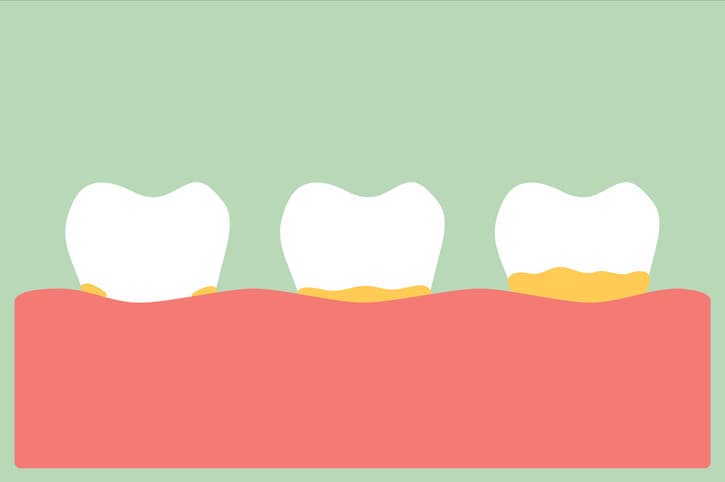
Hygienists: Your Tartar Experts
A Registered Dental Hygienist is an educated primary healthcare professional whose work focuses on the oral health of an individual or community. They provide client-centred services to prevent and treat oral disease and promote wellness. One part of that role is the removal of hard and soft deposits from teeth.
Tartar, or dental calculus, builds on the teeth gradually between dental visits as minerals in your saliva harden and calcify soft bacterial plaque. The detection and removal of tartar are critical for maintaining optimum periodontal (gum) health and preventing gum disease.
Tools of the Trade
The Saudi Dental Journal highlights some of the various techniques and technologies that modern dental professionals use to fight calculus:
- Hand instruments. You’ve probably seen your dental hygienist scrape off tartar with fine-tipped metal tools using a technique known as scaling.
- Ultrasonic instruments. This technology uses a high-powered oscillating tip to remove buildup with micro-vibrations.
- Perioscopy. This extremely tiny scope can probe into the periodontal pockets between gums and teeth to examine calculus buildup on the roots of teeth.
While you may have seen hand instruments similar to your dental practice’s online or in a drugstore, none of these methods is suitable for trying at home. Your dental hygienist has spent years training to remove tartar and perform other procedures, and attempting to use sharp tools in your own mouth can result in severe injuries to your teeth and gums.
It’s a Wash for Anti-Tartar Rinses
It would be nice to be able to wash tartar away, but the jury is still out on the effectiveness of mouth rinses on the development of calculus. One study from Biological, Engineering, Medicine and Science Reports compared the use of chlorhexidine — an antimicrobial mouth rinse widely used in dentistry — and a commercial anti-calculus mouth rinse. The conclusion in the comparative study was that the anti-calculus mouth rinse showed a significant reduction in plaque-induced gingivitis compared to chlorhexidine.
A second study published in the International Journal of Experimental Dental Science tested the effectiveness of an anti-tartar rinse by soaking calculus samples in it in vitro, or in the laboratory setting. A percentage of the mineral content of the tartar was dissolved in the rinse, but only after it had been soaking for trials of 4.5 and 16 hours. No one wants to swish mouthwash for that long!
The best thing patients can do to fight tartar is to reduce plaque and calculus buildup in the first place with proper home care. Brushing at least twice a day and flossing daily will go far in reducing the need to look for ways to remove tartar.
Plaque control directly relates to calculus formation, and has long been the gold standard for prevention of cavities, gingivitis and gum disease. A rinse that can dissolve tartar may be a useful addition in the future, but more research is needed before you’ll find one on your drugstore shelves. Good oral hygiene and regular dental visits are, and will continue to be, the best treatment.
